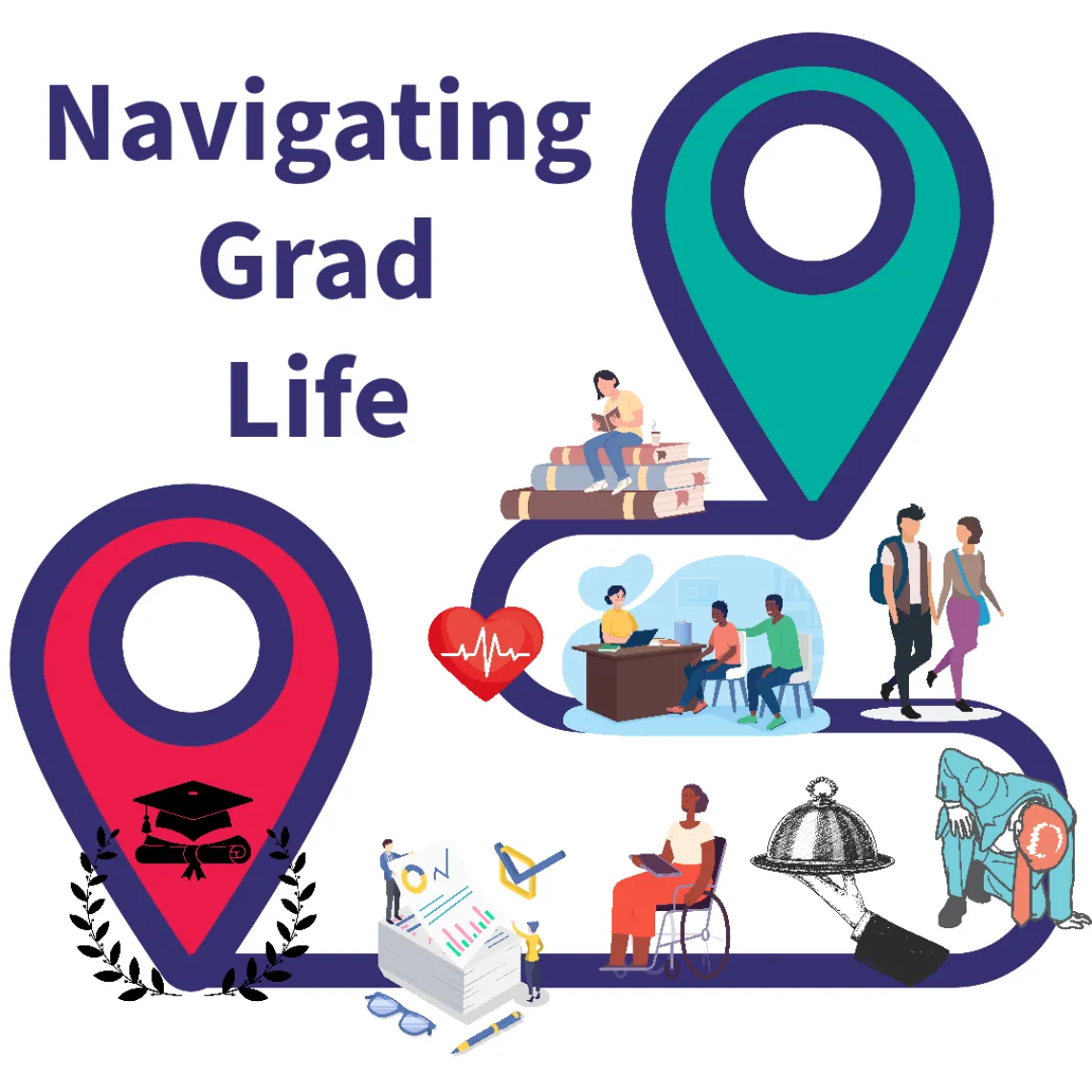Navigating Graduate Life: Tips and Insights From GPSC Reps
We asked three GPSC reps for advice that will help new and returning graduate students manage the demands of academic, professional, and personal life effectively.

Graduate school can be a thrilling yet challenging experience. Balancing academic responsibilities, professional commitments, and personal well-being can be daunting, but fear not – we've got you covered! We interviewed Graduate and Professional Student Council representatives Samuel David Jesse, Priya Jandu, and Sydni Fomas Do, who offered some valuable insights.
Meet Our Graduate Students:
Samuel David Jesse:
Samuel is a fourth-year Doctoral Biosystems Engineering student. In addition to their academic pursuits, they serve as the vice president of the Graduate and Professional Student Council (GPSC) and manages the Mars Winter Greenhouse Lab at the Controlled Environment Agriculture Center. Samuel also enjoys gardening and indulging in the occasional game of Dungeons and Dragons.
Priya Jandu:
Priya is a second-year Master’s student in Public Administration. Alongside her studies, she works as the Communications GA for the GPSC, making her an excellent source of insights into the graduate student experience. Priya is passionate about the culinary arts, particularly cooking and baking, which adds a delightful dimension to her graduate journey.
Sydni Fomas Do:
Sydni is a third-year Marketing Ph.D. candidate. Her research addresses consumer well-being, a topic of increasing relevance in today's world. In addition to her academic pursuits, Sydni represents the College of Management in the GPSC and serves as the vice president of the Black Graduate Student Association.
In this article, we'll provide useful tips and insights from these experienced students to help you effectively navigate the demands of graduate life. Whether you're a newcomer or returning for another semester, these strategies will help you thrive.
1. Managing Academic Work Effectively
Graduate studies often come with substantial workloads, including extensive reading and research. Procrastination can be a significant roadblock. Here's how to overcome it:
Samuel's Procrastination-Busting Tip: Procrastination can derail your academic progress. Samuel emphasizes the importance of kicking this habit early in your graduate studies. Start by setting clear goals and deadlines for your tasks.
Sydni's Sleep and Self-Care Wisdom: Sydni highlights the importance of rest. Lack of sleep can hinder productivity, so it's crucial to know your limits and prioritize well-being. A well-rested mind is a productive mind.
2. Balancing Professional Commitments
Graduate students often juggle academic responsibilities with professional commitments. Effective time management and setting aside dedicated time are key to maintaining balance.
Priya's Planning Power: Priya emphasizes the power of planning and time management tools like calendars to ensure productivity while maintaining balance. Scheduling your entire week in advance can help you stay organized and on top of your tasks.
Samuel's Time Management Tip: Samuel recommends allocating specific time slots for different commitments, whether teaching, research, or administrative duties. Additionally, working with others in support groups can provide much-needed encouragement and accountability.
3. Maintaining a Healthy Work-Life Balance
Balancing work and personal life can be challenging, but it's crucial for your well-being. Here are some strategies:
Sydni's Rest and Wellness Reminder: Sydni emphasizes that rest should not be seen as a reward but as an essential part of maintaining productivity and well-being. Remember to prioritize self-care and make time for activities you enjoy.
Sydni's Therapy and Support Suggestion: Sydni suggests that seeking therapy can be beneficial for personal growth and addressing challenges effectively. Don't hesitate to seek support when you need it. It's a sign of strength, not weakness.
Sydni’s Tip to Embrace Your Holistic Self: You are more than just a graduate student; you have multiple identities and should prioritize self-care. Recognize the value of rest, hobbies, and spending time with loved ones.
4. Overcoming Challenges
Facing adversity head-on and seeking a support network are essential.
Sydni's Adversity and Identity Tip: Sydni acknowledges the challenges of being a first-generation student and a woman of color in academia. Embrace your unique perspective and seek out mentors and peers who understand your journey.
5. Building a Supportive Community
Connect with like-minded peers and utilize campus resources.
Samuel's Community Building Advice: Building a strong community of friends, colleagues, and mentors provides support and validation. Don't hesitate to reach out to fellow graduate students for advice and camaraderie.
6. Remembering Your Unique Journey
All interviewees agreed that each trajectory is unique, and that's something to embrace.
Embrace Your Path: Understand that everyone's graduate experience is unique, and it's essential to be proactive in finding your own way. Your perspective, interests, and goals are what make your journey special.
Value Diverse Experiences: Returning students can bring a fresh perspective to their graduate studies. Recognize the inherent value of your diverse experiences and how they contribute to your growth as a graduate student.
Don’t Forget
Tap into Campus Resources: Make the most of valuable resources like GPSC, which represents graduate students and advocates for their concerns within the university. GPSC provides essential financial support for graduate students through grants, including travel, research, and basic needs funds. In addition, the Graduate Center offers a wide array of professional development opportunities. These encompass improving your writing skills, seeking and applying for fellowships, career consultations, and workshops to help you excel professionally, personally, and academically.
Navigating graduate life may be demanding, but armed with the wisdom shared by Samuel, Priya, Sydni, and other experienced students and faculty around you, you can not only survive but thrive. Remember to prioritize self-care, seek support when needed, and embrace the uniqueness of your graduate experience.

